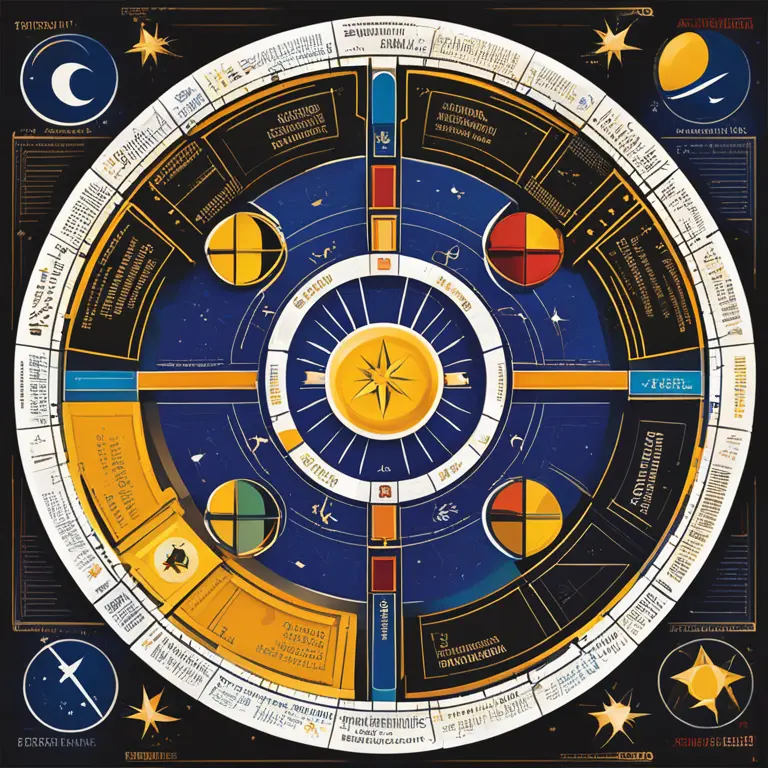
Astrology: A Myth Not Written in the Stars
Delving into why astrology lacks scientific backing and why it's considered baseless by the scientific community.
article by Priya Deshmukh
Astrological Assertions: A Critical Examination
Many look to astrology for answers about their personality, future and love life, but a critical examination reveals this ancient practice lacks empirical support. Despite the thousands of years astrology has been in practice, it has failed to demonstrate reliability or provide verifiable predictions under scientific scrutiny. Horoscopes give generalized and vague statements that can apply to anyone, which is known as the Forer effect. People tend to remember the "hits" while ignoring the "misses" of astrological predictions due to a cognitive bias called the confirmation bias. Furthermore, astrology has not evolved with new astronomical discoveries, retaining outdated concepts like the geocentric model and the rigidly-defined twelve zodiac signs.

The Faulty Foundations of Astrology
Astrology’s methodology is flawed from a scientific standpoint because it lacks a mechanism to explain how celestial bodies could influence individual lives. The idea that the position and movement of distant stars and planets at the time of birth could affect personality and events contradicts established principles of physics. Distance weakens gravitational effects exponentially, so the influence of celestial bodies on Earth is minuscule, not to mention on individual humans. Astrologers also fail to provide consistent interpretations, making astrology more akin to an art than a science. Without replicable results or a solid theoretical basis, astrology remains in the realm of pseudoscience.

Barnum Statements and the Human Psyche
Horoscopes are often credited with providing insightful descriptions about one’s life; however, these "insights" are typically so broad that they can apply to anyone. These statements are known in psychology as Barnum statements, which exploit the tendency of people to give high accuracy ratings to descriptions of their personality that are supposedly tailored specifically to them but are, in fact, vague and general enough to apply to a wide range of people. This exploitation of cognitive bias helps to explain why many believe astrology works when, scientifically, it doesn't hold water.

Astrology vs. Astronomy: The Scientific Divergence
Astrology and astronomy started as intertwined studies; however, the scientific revolution saw their paths diverge. Astronomy has since become a respected scientific field, heavy with empirical evidence and theoretical underpinnings – astrology has not followed this trajectory. As astronomy has provided humanity with insights about the universe, its laws, and its constituents, astrology has remained stagnant, relying on mystical traditions without adapting to new scientific understandings. The lack of growth and rectification with new findings is one of the strongest indictments of astrology as having anything important to say about our universe or our lives.

Societal Impacts and the Responsibility of Astrology Prominent
Astrology has a significant psychological and societal impact which cannot be ignored. It influences individuals' decisions ranging from career choices to romantic relationships. However, making potentially life-altering choices based on unscientific methods poses risks. As such, proponents and practitioners of astrology hold a responsibility to ensure that their claims are not presented as scientifically validated. With the widespread availability of information and the high levels of literacy and education expected in 2024 and beyond, this call to responsibility becomes ever more imperative.
Embracing Critical Thinking
As we proceed into 2024 and beyond, critical thinking and an evidence-based approach to understanding the world around us will be integral. While astrology offers an appealing narrative that promises to impart control or predictability over the chaos of existence, the lack of evidence supporting its foundational claims renders it an unreliable guide. It’s important to approach such matters with skepticism and critical thought, especially in an era increasingly driven by data, analysis, and empirical study.
Published: 2/13/2024
Modified: 2/13/2024
More predictions
Come back here soon to learn more about yourself and your future


The Tarot Queen of Pentacles: A Rich Symbolism
Delve into the symbolism and meanings of the Tarot Queen of Pentacles to enhance your readings and personal insights.


The Tarot's Queen of Pentacles: A Guide to Practical Wisdom
Delve into the significance of the Tarot's Queen of Pentacles and discover how this card symbolizes nurturing abundance and material mastery in readings.


The Essential Tarot Card Meanings Guide with Images
Discover the meanings behind the mystical tarot cards with our comprehensive guide, complete with vivid imagery to enhance your understanding of each card's symbolism.